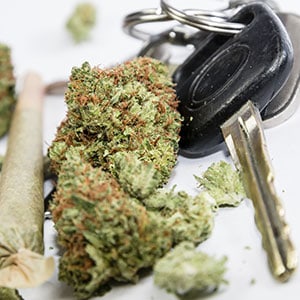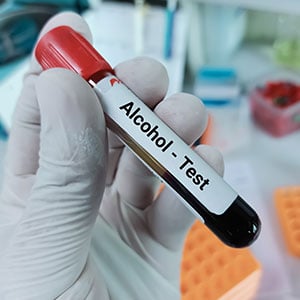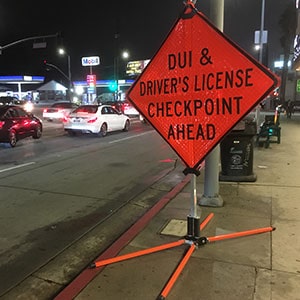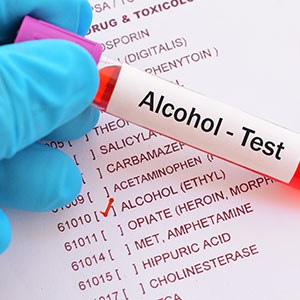
Understanding the elements of a charge of operating under the influence (OUI) in Maine is fairly straightforward in Maine. In most cases, law enforcement obtains a breath or blood sample from a driver and tests the blood alcohol concentration (BAC). If a driver's BAC is .08 percent or more, the alleged offender could be convicted of OUI. The law also outlaws operating a vehicle under the influence of drugs. While testing for some drugs has been available for years, technology has thus far not allowed for an accurate marijuana breathalyzer. That may change as soon as 2020. According to University of Pittsburgh researchers, the release of a marijuana breathalyzer could be close at hand. The Challenge Of A Marijuana Breathalyzer The issue with detecting intoxication through marijuana isn't simple. Unlike many other drugs that exit the body in minutes or hours, traces of marijuana can remain for weeks or months. While these tests might give law enforcement an idea of whether a person used marijuana in the last month, current technology is useless in determining…Read More

You have choices. When you are pulled over, maybe for a minor traffic violation, and the officer for whatever reason suspects you may be operating the vehicle under the influence of alcohol or drugs (OUI), you have a choice when asked to participate in field sobriety tests or to submit to a chemical test – more specifically, to a breath or blood test. Refusal, however, in terms of submitting to a breath or blood test, can have an immediate impact on your driving privileges regardless of whether or not you are actually illegally intoxicated to operate a motor vehicle in Maine. Refusing to perform a field sobriety test has no such consequence. Here's what you should know before you refuse a breath or blood test during an OUI investigation in Maine. Consequences Of A Breath Or Blood Test Refusal In Maine There are two specific consequences that occur in Maine when you refuse to submit to a breath or blood test. Your driver's license will automatically be suspended for at least 18 months and an…Read More

In this country, we have what's known as Fourth Amendment rights. Part of the rights is to be free from unlawful search and seizure. The law does not get to unreasonably search and seize either your person or your property without probable cause, meaning if you haven't done anything wrong or, even to a lesser extent, you have given no reason for anyone to suspect you've done something wrong, you don't get pulled over. Unless it's a sobriety checkpoint in Maine. A sobriety checkpoint is effectively an unlawful search and seizure. You are on your way home, you see a van up ahead with police officers, and you are asked to stop your vehicle even though you did nothing wrong. But herein lies the problem: the U.S. Supreme Court effectively made a loophole in the Fourth Amendment with regard to sobriety checkpoints. In Michigan Department of State Police v. Sitz, 496 U.S. 444 (1990), the U.S. Supreme Court ruled sobriety checkpoints are constitutional. So, here we are in 2019, and at the beginning of September,…Read More

If you were arrested for an OUI in Maine, then it is quite possible a blood sample was taken. A blood sample to determine a person's blood alcohol content is more reliable and accurate than a breath test. Because of its general reliability and accuracy, OUI clients are often scared their case cannot successfully be defended. But your OUI in Maine can be defended – even when a blood test was administered. Here's what an experienced will do to identify areas to challenge when a blood test has been taken. Scrutinize The Circumstances Surrounding The Taking Of The Blood Sample Whoever draws your blood must be legally certified to do so. That means more often than not a police officer cannot draw blood. It will likely have to be done by a nurse, phlebotomist, or a doctor – whichever is available. After making sure the person who drew your blood was legally allowed to do so, your attorney will inquire into if the process was conducted right. The blood draw site must have been sterilized…Read More

In Maine (or throughout the United States, for that matter), the police cannot stop your vehicle for no reason. Further, if they do conduct a traffic stop, they can't do whatever they want – there are regulations, rules, and laws they must follow. And when the police don't follow proper procedures, the traffic stop may have been conducted illegally. Here's what you need to know about traffic stops in Maine. You Have Rights During A Traffic Stop In Maine The first thing to keep in mind whenever you hear the sirens wailing behind you and you pull over is this: you have rights. Below is a summary of what those rights are. You have the right to remain silent. If you want to exercise this right, politely tell the police you wish to remain silent and not answer questions. You have the right to a lawyer if taken into custody. If you are arrested, you can immediately request a criminal defense attorney. You have the right to ask if you are under arrest, and if…Read More

In a previous post I discussed the basics of OUI/DUI charges in Maine as well as the penalties associated with those charges. I'm using the terms OUI and DUI interchangeably to make it easier for people that are used to different terms for the same thing. It is important to understand that in Maine it is always officially OUI. In this post I'm going to discuss issues that come up when evaluating an OUI/DUI charge in Maine. The first issue that I'm looking at when I review a case or meet with a potential client is the stop itself. Law enforcement usually refers to this phase as “vehicle in motion.” The stop is exactly how an individual comes face-to-face with law enforcement. There are many different types of stops; there are traffic infraction stops, erratic driving stops, “tipster” cases where one a call is placed to law enforcement about the vehicle, roadblock stops, and even some cases where there basically is no “stop,” because law enforcement is detaining a person who is no longer in…Read More

Most people are familiar with the crime of OUI/DUI/DWI. In Maine, driving while impaired by alcohol is known as Operating Under the Influence. Specifically, Maine Title 29-A Section 2411 makes it a crime to operate a motor vehicle while 1) under the influence of intoxicants or 2) while having an alcohol level of .08 or more per 100 milliliters of blood or 210 liters of breath. The criminal law in Maine goes on to specify mandatory minimum sentences for OUI crimes depending upon the circumstances. These circumstances include prior OUI offenses (including out of state OUI/DUI's) within a 10 year period, the level of alcohol, whether a chemical test was refused, whether a passenger was under 21, whether other motor vehicle crimes were committed at the same time and whether there was an accident involving injury or death. Generally speaking these mandatory sentences affect three areas: 1) mandatory jail time, 2) mandatory loss of license and 3) mandatory fines. OUI PENALTIES: 1st Offense: $500 fine, 150 day loss of license. Class D Misdemeanor 1st Offense…Read More

If you're facing any kind of legal situation, you might be wondering, “do I need a lawyer?” There are many reasons why the answer to this question is almost always yes, but the simplest one is that you need a lawyer because your life matters. If you are facing a criminal charge, the State has an experienced lawyer, the State has law enforcement officers, and the State holds all the cards. You should never face this alone. A attorney that cares can defend your rights, help you navigate the process, make sure that you have a voice in the courtroom and ultimately change your life for the better. Nothing good can come of going to Court by yourself. If you have a family situation, a lawyer can help you understand the law, help you make decisions for your family and your future, and make you sure that you aren't taken advantage of or mistreated. I could go on and on about well meaning people who go to Court by themselves thinking that it is their…Read More